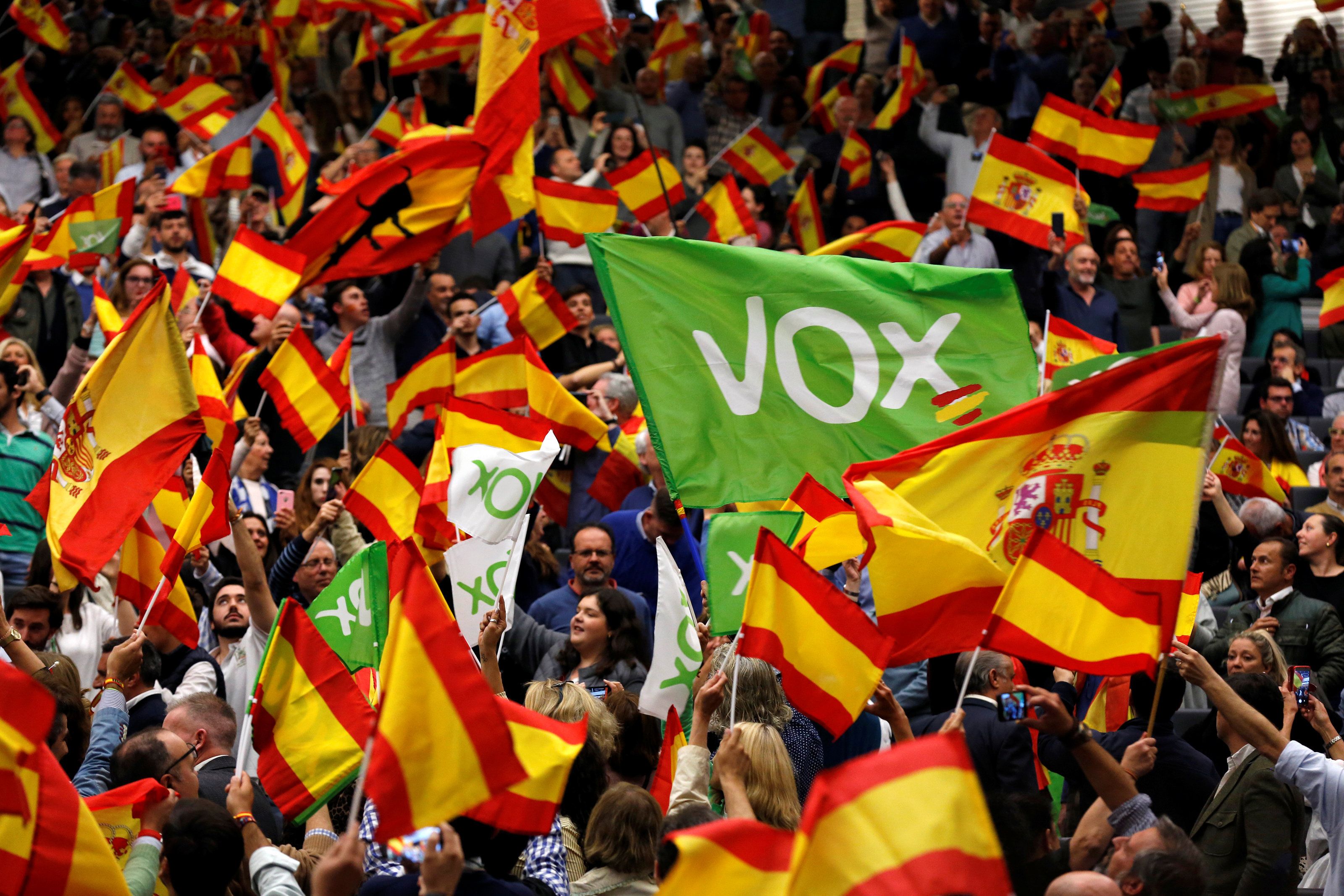Spain's far right surge — The far right Vox party made the biggest gains in Spain's general election Sunday, more than doubling their seat count to 52 (out of 350), to become the third largest party in parliament. For decades, the stigma of Francisco Franco's dictatorship (1939-1975) seemed to insulate Spain from the far-right populism that's swept Europe in recent years. But now Vox's ultra-nationalists will find it easier to shift the national dialogue on key issues like immigration and quashing the Catalan independence movement. The current Socialist prime minister Pedro Sanchez had hoped that the election – the country's fourth in as many years – would break a political deadlock and strengthen his hand to form a new government. Though Sanchez's Socialists came out on top, they fell short of an absolute majority, losing three parliamentary seats since the last election in April.
A "landmark" ruling in India – India's Supreme Court has ruled that Hindus can build a temple on a hotly disputed holy site in the northern Indian city of Ayodhya. In 1992, Hindu extremists destroyed a 16th century mosque on this site, a place that many claim as the birthplace of the Hindu god Ram. That act of destruction touched off weeks of sectarian violence that killed hundreds of people. We're watching to see whether the court's ruling ends this long-running dispute, or whether it inflames sectarian tensions further in the world's most populous democracy. Many of India's Muslims fear that the ruling BJP wants to shift the country in a more overtly Hindu nationalist direction.
Worsening violence in Hong Kong — Weekend clashes in Hong Kong saw the most violent escalation in five months of pro-democracy protests, as police shot and critically wounded a 21-year-old protester, while a pro-Chinese activist was doused in gasoline and set on fire by an anti-government mob. Anti-government fervor ran high after a pro-democracy student died on Friday after falling from a rooftop, and violent unrest has now spread to university campuses that had formerly been mostly quiet. Carrie Lam, Hong Kong's Beijing-backed leader, is clearly losing patience, calling demonstrators "the enemy of the people," but Beijing seems unwilling to risk a broader crackdown just yet. As violence increases, both sides have dug in. We are watching to see how long the deadlock can persist – spoiler: perhaps for a long, long time.
The trouble with counting Kenyans – The Kenyan government's statistics bureau has released new census figures, the first in a decade, setting teeth on edge in a country where political parties are closely aligned with ethnic groups. The census matters because population estimates help determine levels of both political representation and government funding. In a country with a recent history of violently contested elections, some groups are already claiming that the government has manipulated the results to favor some ethnic groups over others. Kenyan officials go door-to-door across each region to collect data, but the information is taken electronically and then dispatched to a central database, fueling mistrust in the integrity of the process.
What We're Ignoring:
Assad's invitation – Good news for anybody pining to be president of Syria: With the country's brutal eight-year civil war grinding to an end, its triumphant strongman, Bashar al-Assad, says that anybody who wants to can run against him in 2021, and that he expects "numerous" challengers at the polls. We're ignoring the temptation to throw our hat in the ring: This is the guy who ran in a "contested" election in 2014 during a hot conflict between his government, ISIS, and rebels seeking to overthrow his family's four-decade iron grip on power – and still netted 89 percent of the vote.
